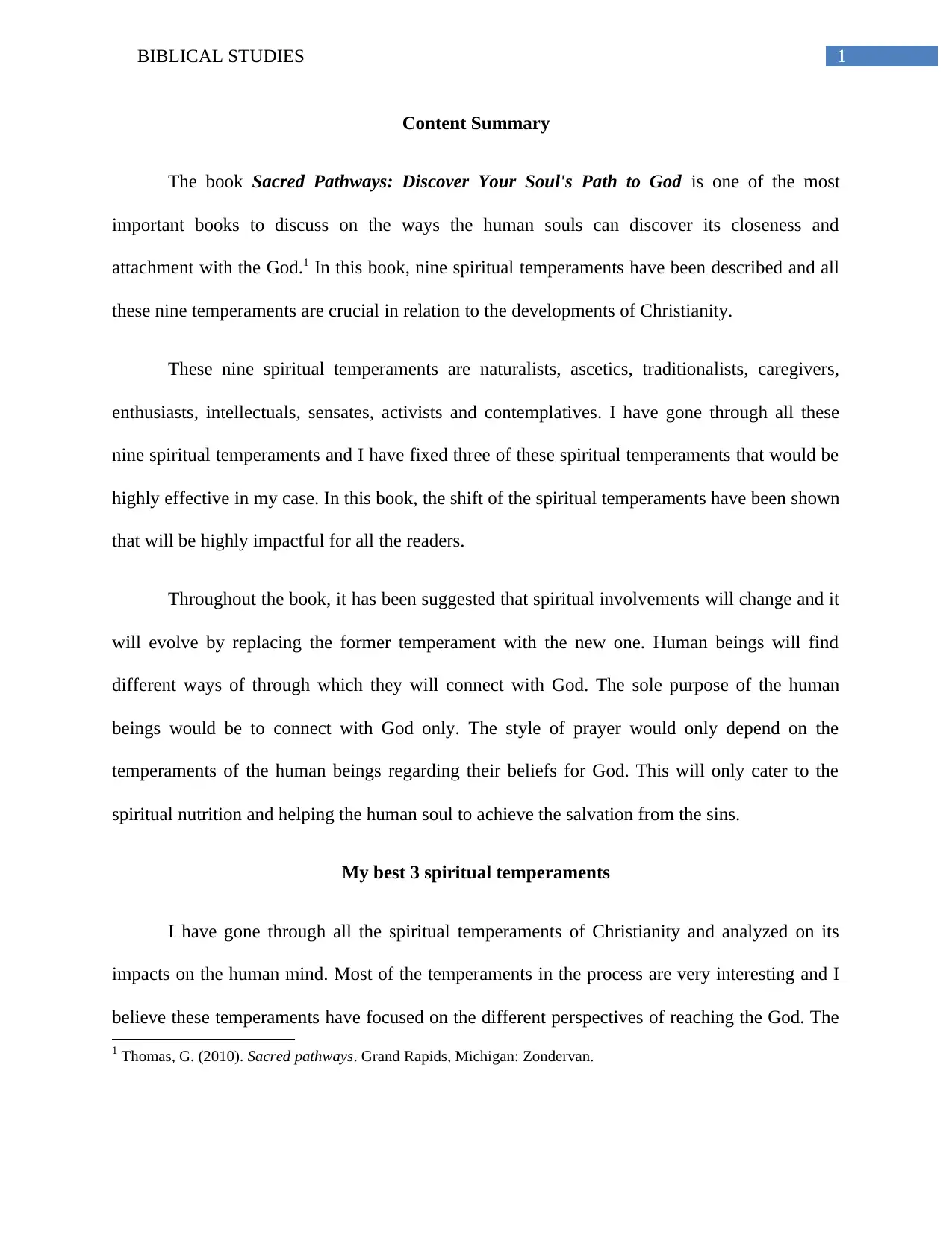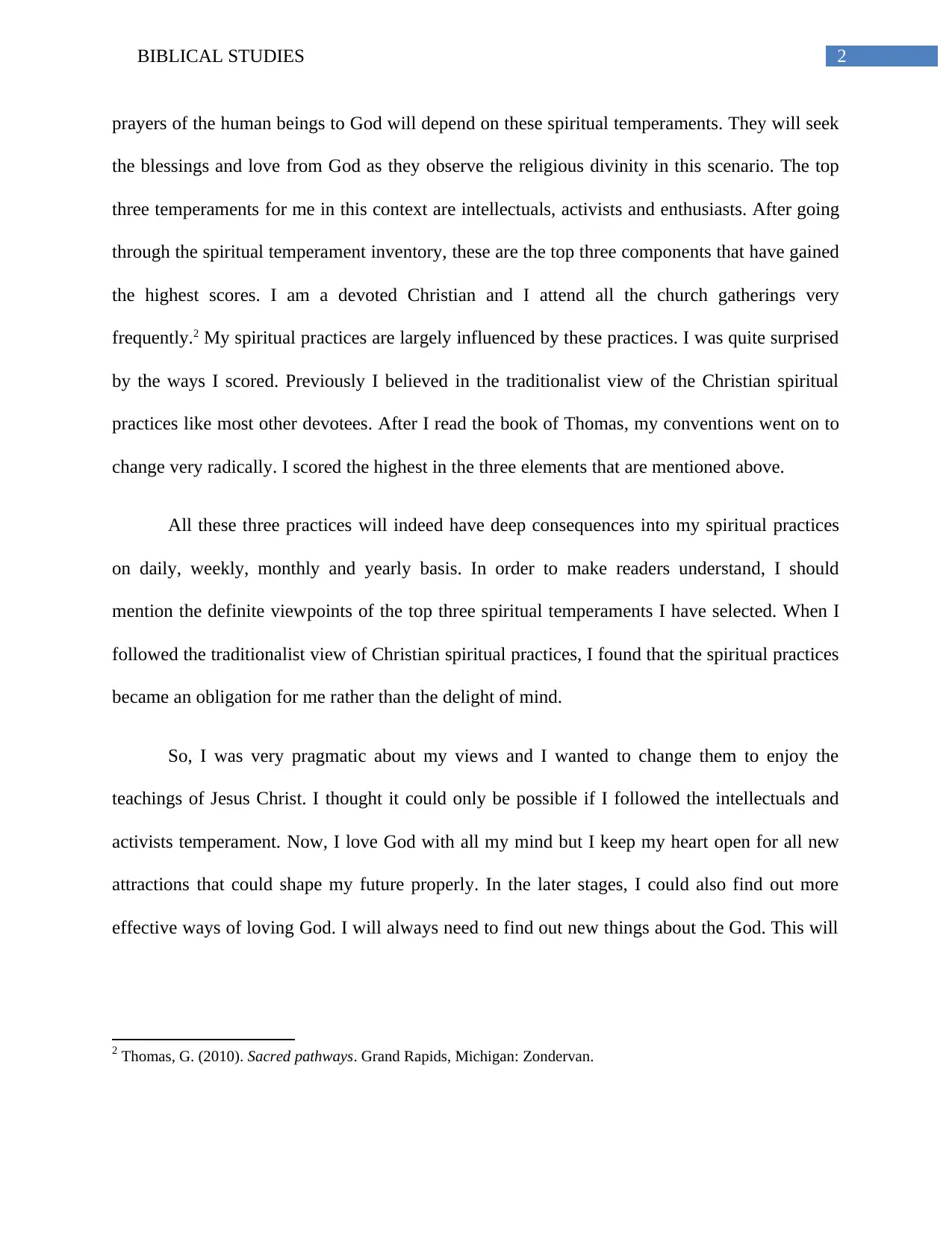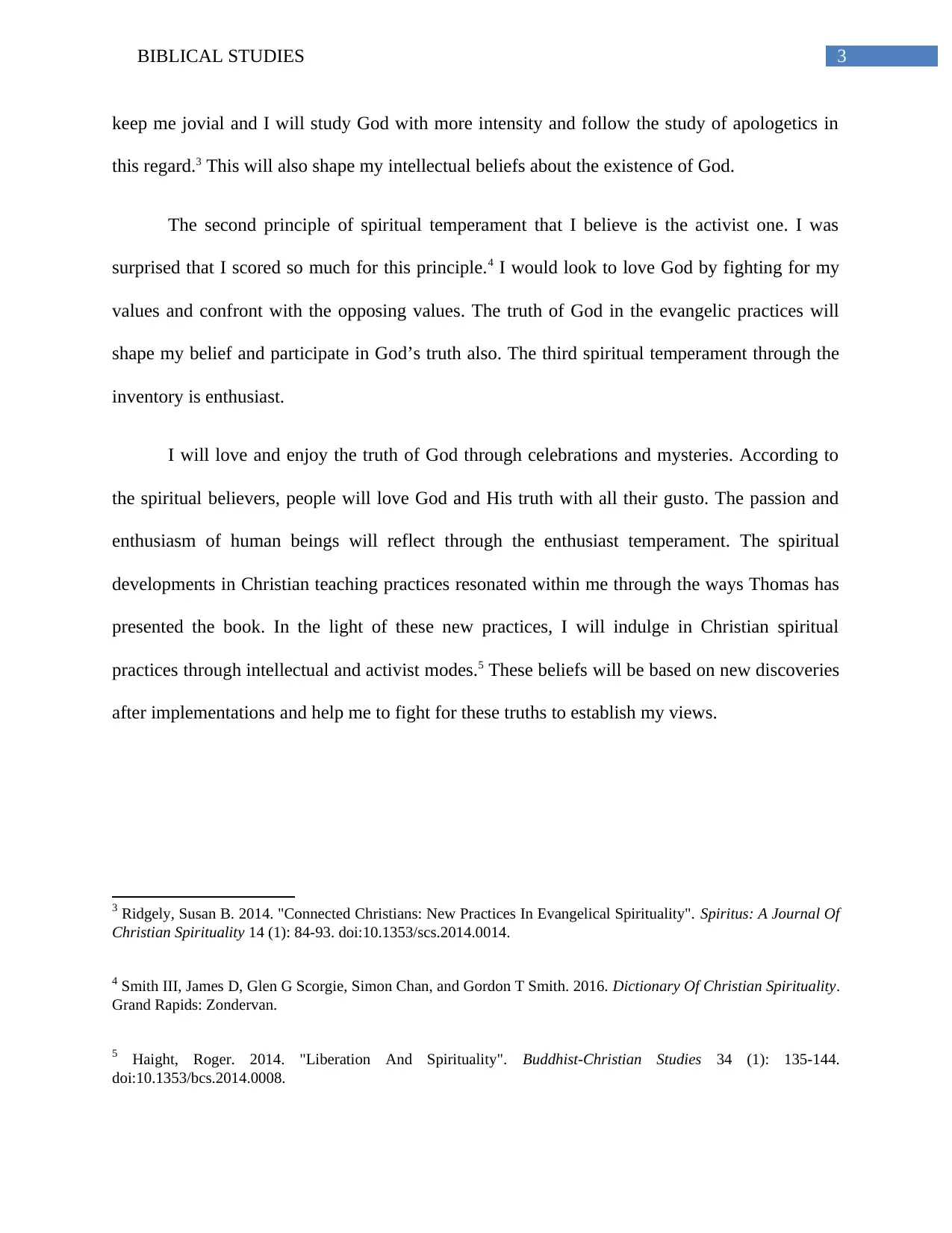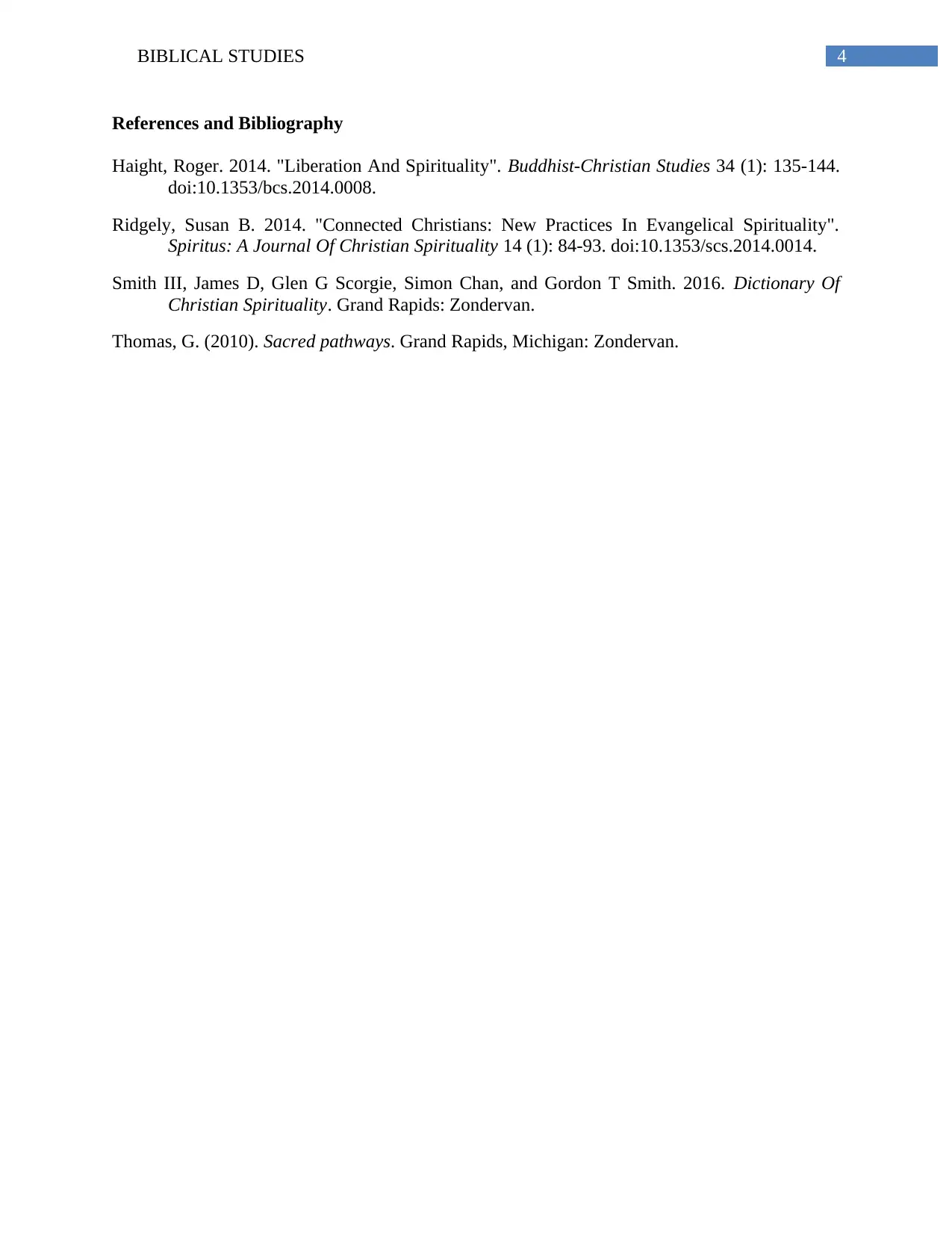The King's University: Reflective Critique of Sacred Pathways
VerifiedAdded on 2022/08/09
|4
|937
|254
Report
AI Summary
This report presents a reflective critique of Gary Thomas's 'Sacred Pathways,' focusing on the nine spiritual temperaments discussed in the book. The student summarizes each temperament, including naturalists, ascetics, traditionalists, caregivers, enthusiasts, intellectuals, sensates, activists, and contemplatives, highlighting their significance in Christian spiritual development. The core of the critique involves the student's self-assessment and identification of their top three temperaments: intellectuals, activists, and enthusiasts. The analysis details how these temperaments resonate with the student's personal faith journey, influencing their prayer styles, engagement with church practices, and overall spiritual beliefs. The student explains how these temperaments shifted their perspective from a traditionalist view to a more dynamic and personally engaging approach to faith. The report concludes with a discussion on how these chosen temperaments shape the student's spiritual practices and worldview, supported by references to scholarly works on Christian spirituality and related topics.
1 out of 4






![[object Object]](/_next/static/media/star-bottom.7253800d.svg)